Constipation in Cats
The average house cat will have a bowel movement every 24 to 48 hours. This frequency will be affected by factors like how big they are, how much they eat, and how much fiber is included in their diet. In some cases, bowel movement frequency can change. If you notice your kitty straining to defecate, or if there hasn’t been a bowel movement in more than 48 hours, he or she may be constipated. Let’s take a look at what constipation in cats means and how to help.
What is constipation in cats?
Constipation is when feces sits in the colon for longer than normal periods of time. Since the colon is responsible for absorbing water back into the body, feces can become very dry and hard when it remains in the colon for too long. This can cause painful defecation for your cat, especially if so much stool has accumulated that it is now difficult to pass on its own.
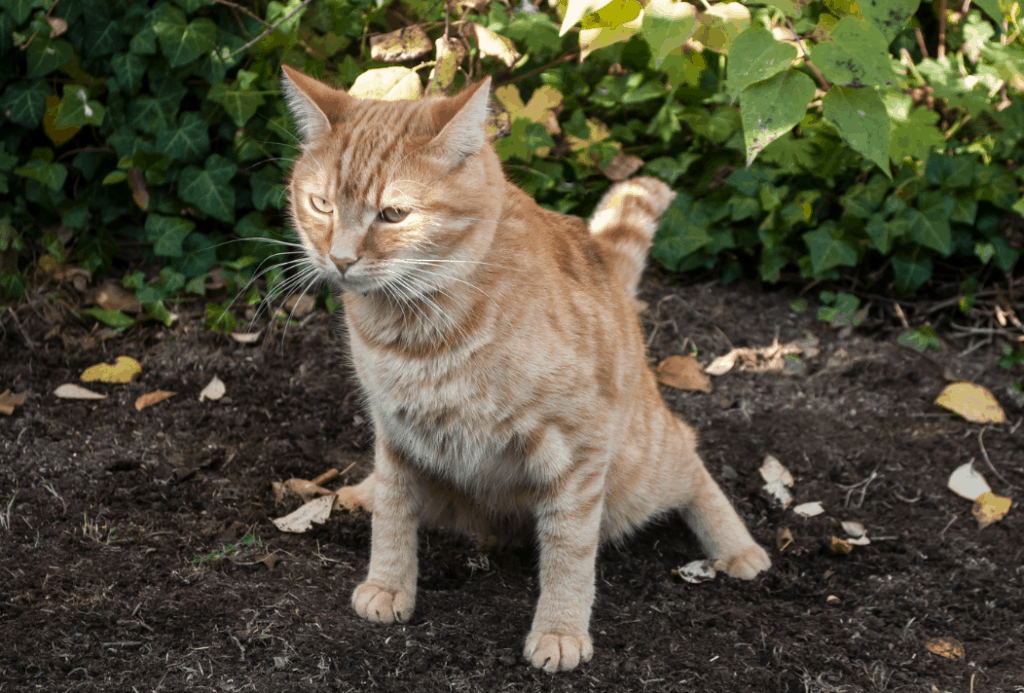
What causes constipation in cats?
Constipation can be caused by different factors. Cats who have health conditions that result in dehydration (e.g. kidney disease) may be more susceptible to constipation. Obese cats are also more likely to develop constipation, and long-haired cats have an increased risk because they often have more hairballs than shorter-haired cats. Cats with pelvic injuries or with tumors in their colon will have a much narrower opening for feces to move through.
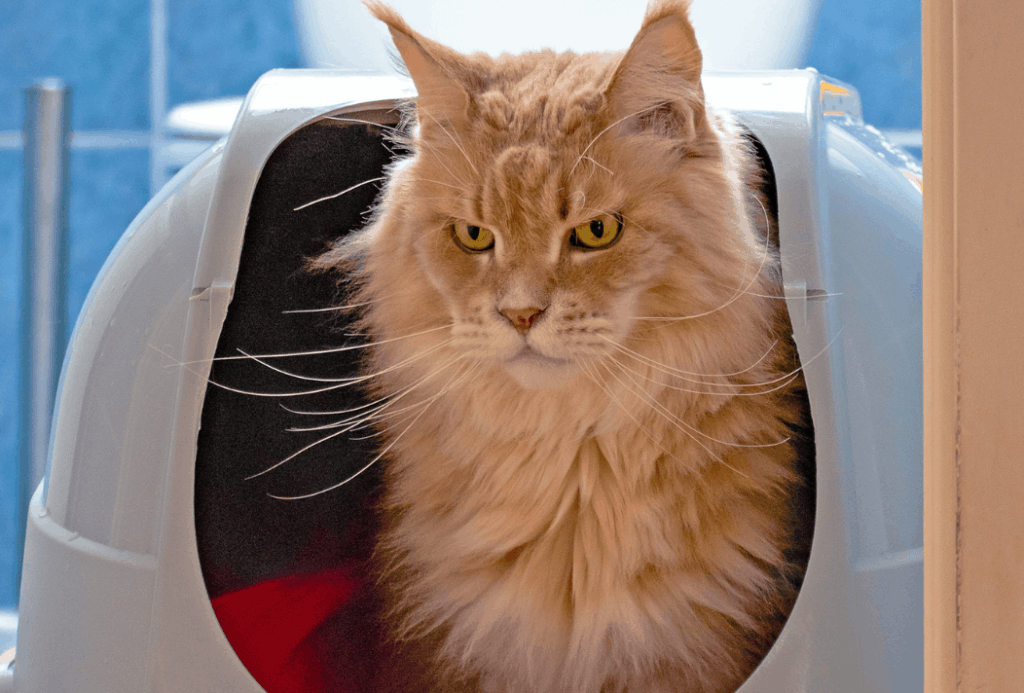
Sometimes, the flow or motility of feces through the colon can cause constipation. The direct cause for this slower motility is often not known, but cats who have chronic constipation are more prone to it. This is because the colon can become large and stretched over time, a condition referred to as megacolon. Cats with megacolon will have a much slower motility, and the ability for the colon to push stool through it becomes impaired.
How can you tell if your cat is constipated?
Straining
Constipated cats may strain to defecate. They will posture to defecate but may sit there for prolonged periods of time and no stool will pass. In some cases, a small amount of loose stool may pass, but this is usually because the small loose stool can slip past the dry hard stool in the colon.
Vocalizing
Cats who strain to defecate may also vocalize because of the pain.
Dry and hard feces
If they do produce a bowel movement, you might notice that the feces is very dry and hard when it passes.
Urethral obstructions can be mistaken for constipation
It is important to note that male cats with a urethral obstruction can also posture in the litterbox for long periods of time, and they may cry out or vocalize when doing this. This can easily be confused for constipation. Since urethral obstructions are a medical emergency, make sure to call your veterinarian right away if your cat hasn’t urinated that day.
Diagnosing constipation in cats
Touch examination by a vet
Besides asking about your cat’s medical history and clinical signs, your vet may also be able to feel the large firm stool in your cat’s colon just on exam alone.
X-ray or ultrasound
However, it is prudent to recommend x-rays or abdominal ultrasound in order to see how much stool is truly present and if there is anything else that could be occurring. For example, foreign bodies and strictures can cause partial or complete obstructions of the colon.
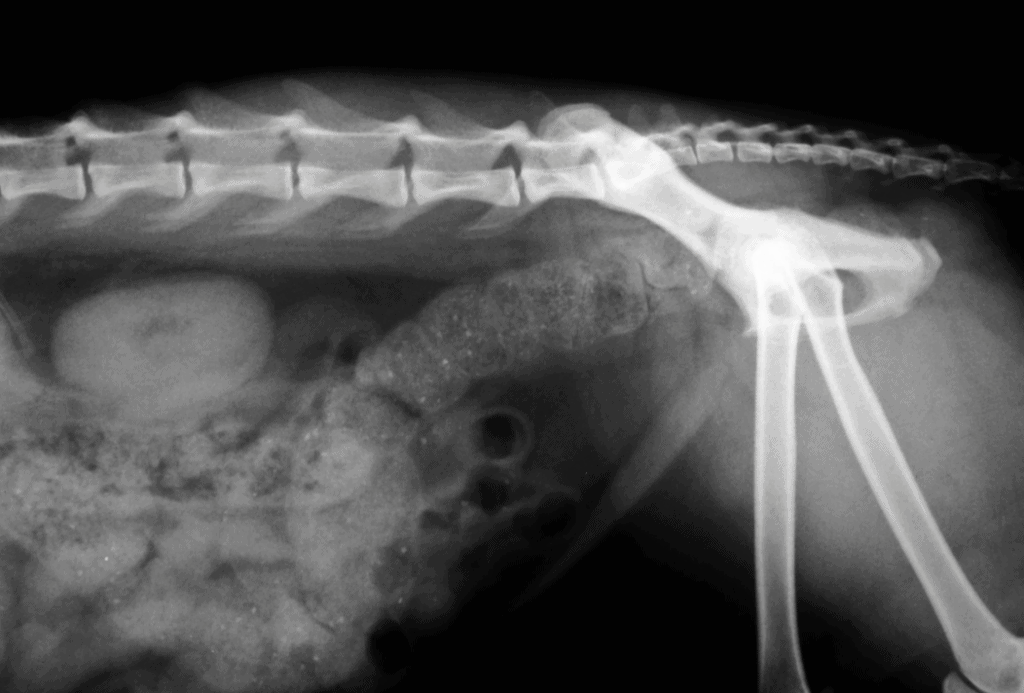
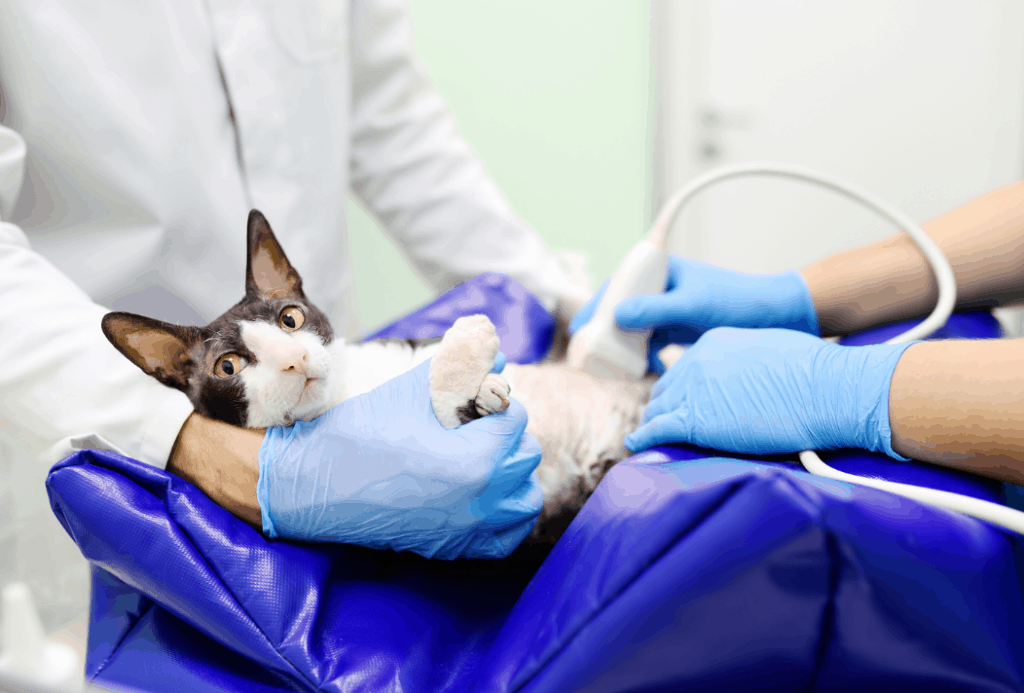
What do you give a cat for constipation?
Laxatives
Constipation can be treated in a number of ways. First-time or mild cases may need a simple laxative to help them pass the stool. Lactulose is a common laxative that helps to draw water into the colon, resulting in softer stools.
Enema
If laxatives don’t help, your vet may perform an enema. This is when a soapy liquid is inserted into the rectum to act as a lubricant around the dry, hard stool.
Fluids
If your cat’s constipation is due to dehydration, your vet may recommend fluid therapy to correct the fluid deficit. This can be done by administering fluids below the skin (subcutaneously) or via an intravenous catheter. The latter option is often warranted by conditions such as kidney disease. Additional treatments like anti-nausea medication may also be necessary.
Fiber supplements and special diets
For cats with chronic constipation, fiber supplements and special diets are recommended for long term usage. This is because fiber also helps with the passage of dry, hard stools. For long-haired cats, hairball supplements help to lubricate the gastrointestinal tract.
Medication
Severe and chronic cases of constipation can be difficult to manage. Your veterinarian may prescribe medications like cisapride, a prokinetic medication that helps to increase the motility of the gastrointestinal tract. Over time, however, the efficacy of this medication will wear off.
Surgery
For cats that do not respond to any medical therapy, surgery may be necessary. Specialty surgeons can perform a surgery called a partial or sub-total colectomy. There are few side effects from this surgery, and most do quite well after they have recovered.
Constipation can be an uncomfortable condition for your cat
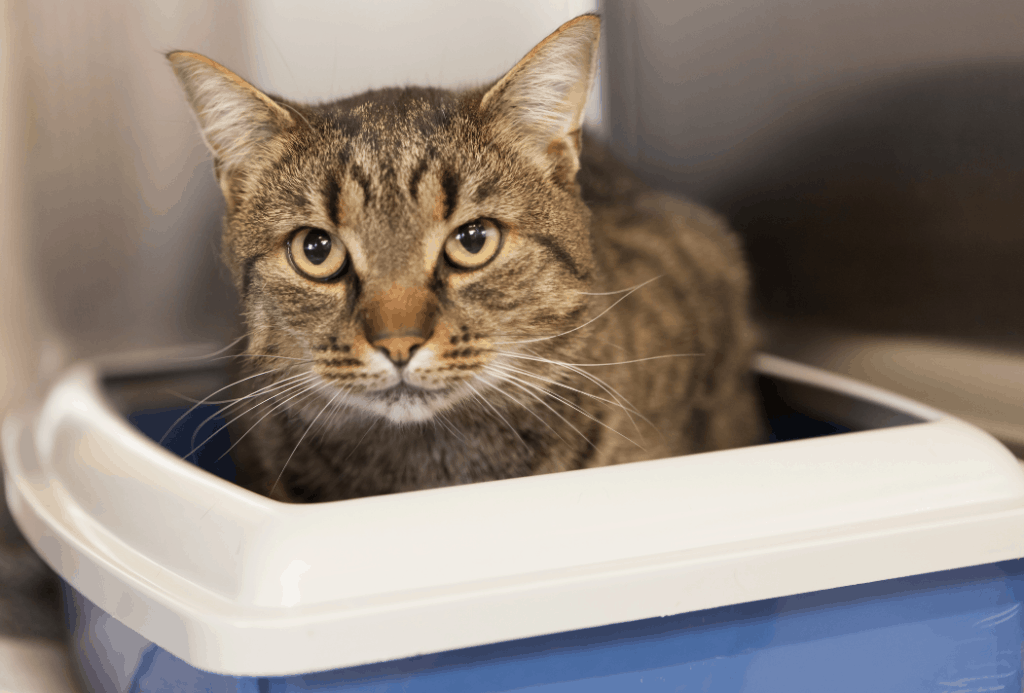
It is important to address constipation concerns with a veterinarian right away, especially if there is a chance that your cat has a urethral obstruction because the straining in both scenarios can look the same. Most cats respond well to medical management, and chronic cases may benefit from surgical intervention.
The post Constipation in Cats appeared first on VetBabble.




Post a Comment